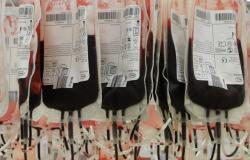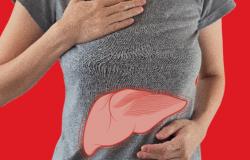The ketogenic diet is a promising ally in the psychiatric improvement of patients with schizophrenia and bipolar disorder. The information is a study carried out by Stanford University in the United States.
But, for now, antipsychotics, medications characterized by psychotropic action, remain the standard treatment and their metabolic side effects are a concern.
Credits: iSTock
Study reveals the best diet to treat schizophrenia
What is the best diet to treat schizophrenia? Discover the ketogenic diet
The ketogenic diet, or “keto,” is a low-carb, high-healthy-fat eating plan.
Therefore, it is designed to put the body into a metabolic state called ketosis, in which the body burns fat as its main source of energy.
What does the ketogenic diet include?
- Meat;
- Fish;
- Eggs;
- Cheeses;
- Nuts;
- Seeds
- Healthy oils.
The ketogenic diet has primarily been used for weight loss, blood glucose control in patients with type 2 diabetes, and as complementary therapy for certain neurological conditions such as epilepsy.
Credits: iSTock
What is the potential of the diet?
Shebani Sethi, associate professor of psychiatry and behavioral sciences at the university and leader of the study, highlights the diet’s potential.
“Already known for its benefits in cases of drug-resistant epilepsy, we explored the impact of this dietary intervention on psychiatric conditions,” reports Sethi.
What does the study say about the diet?
Sethi’s team conducted a study of 21 adults diagnosed with schizophrenia or bipolar disorder, on antipsychotic medication and with metabolic abnormalities, during four months of a ketogenic diet.
Without the need to count calories, the nutritional plan was based on an approximate intake of 10% carbohydrates, 30% proteins and 60% fats.
At the end of the study, the results were remarkable. As a result, participants experienced an average loss of 10% of body weight, along with marked improvements in several health indicators.
Among the improvements seen were reductions in waist circumference, blood pressure, body mass index, triglycerides, blood sugar levels and insulin resistance.
What are the benefits of the ketogenic diet?
- Reduction in waist circumference
- Improvement in blood pressure levels
- Decrease in triglycerides and blood sugar
The ketogenic diet is characterized by a drastic reduction in carbohydrate intake, but it also prioritizes proteins and fats.
This dietary model proposes the use of fat as the body’s main source of energy, which not only accelerates the weight loss process, but also promotes neurological benefits.
How did the diet help patients?
The most impressive aspects of the study can be observed in the psychiatric sphere of patients.
Adherence to the ketogenic diet not only boosted metabolic health, but also eliminated cases of metabolic syndrome among participants, and also promoted a visible improvement in psychiatric conditions.
Are there side effects of the ketogenic diet?
The ketogenic diet, known for its high fat content, low carbohydrate consumption and moderate protein intake, has been associated with several side effects during its implementation.
However, during the initial phase, many people may experience symptoms known as ketogenic flu, which include fatigue, headaches, nausea, irritability and difficulty concentrating.
Additionally, some report constipation due to a lack of fiber, as well as bad breath, caused by increased production of ketone bodies.
Other concerns include electrolyte imbalances, such as loss of potassium, magnesium and sodium, which can lead to symptoms such as muscle cramps and fatigue.
Tags: Study reveals diet treat schizophrenia
--






